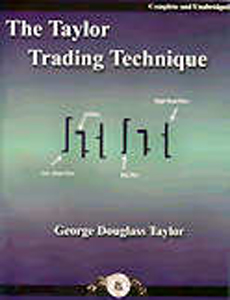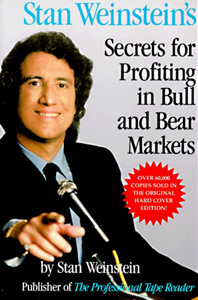Separately Managed Accounts (SMAs)
Further Reading
SMA's or Separately Managed Accounts are those accounts that are managed professionally, offering certain benefits over the managed funds. In case of an SMA, the securities remain visible as well as portable as if the securities were bought directly. In addition to this, you will hold the ownership of the underlying shares and not only the units in a fund. This means that you will be able to manage your tax position more efficiently and won’t have to cop the accrued capital gains which often turn out to be a part of the unit price as far as managed funds are concerned.
If you have a huge amount of cash for investing (like millions), you might consider directly communicating with a fund manager asking him/her to trade your money on behalf of you personally. This will allow you to avoid getting all shoved into a fund but instead your account will be dealt separately by a fund manager.
Many people usually find the concept of running a separate account quite lucrative. With the advancement of computer software, the whole idea (SMA) is taking hold and it is not just with the wealthy people of the country.
It is important to keep in mind that financial planners, stockbrokers, private banks as well as fund managers offer managed account too but in different guises. In such cases, the portfolio might contain property trusts, shares, exchange traded funds or a mixture of all of them.
Easy Online Access
The inherent flaws of the typical unit trusts are highlighted by the common sense characteristics of separately managed funds. You will be able to check on all your securities at an everyday basis since SMA’s offer online access facility to your account. It is almost impossible to source equivalent information from a unit trust.
Tax Advantages that you may enjoy
In comparison with the unit trust, SMA’s come up with better tax advantages too. In case of SMA, you will be spared from the tax impact caused by the trades (buying and selling) of other members simply because of the fact that your account will be managed separately. It is not possible to inherit a capital gains tax liability in case of buying into a portfolio. In addition to this, you will be glad to know that finally you can “see off” the tax bill on a negatively performing unit trust as this doesn’t occur in case of the SMA’s.
Level of Customisation: Large vs. Smaller Investments
However, it is important to keep in mind that the level of customisation varies depending on the size of the investment. The large multi-million dollar portfolios usually enjoy more customisation facilities in comparison with the accounts with smaller investments. The cheaper off-the-shelf SMA’s offer the “model portfolios” in case of which everyone will receive the same investment portfolio. The difference is that for tax purposes, your account will be separated from the others.
Individually Managed Accounts (IMA)
The Individually managed account or IMA’s are those accounts that are managed more sophistically, offering more flexibility. However, these accounts are restricted for larger portfolios with the range of $200,000 and above. In case of an IMA, you will be allowed to sell shares that are eligible to enjoy the 50% capital gains tax discount.
One of the biggest challenges for the SMA providers is to convince the financial advisers to adopt them since a large number of advisers in Australia usually stays with the managed funds as master trusts and wraps that dictate the those breadth of products that are usually offered by the advisers to their clients. Considering the fact that the Separately Managed Accounts does not exist in most of the platforms, many advisers are not even aware of their existence.
Glossary List- How to Trade Forex and Gold Options
- How to Trade the Gold Price and Profit!
- Forex Trading the EUR/USD Pair € EURO and $ US Dollar
- How to Trade Stock Market Indices S&P500
- How to Trade Crude Oil
- Forex Trading Psychology
- What Are Broker Recommendations?
- Free Tickets to Trading & Investing Seminar & Expo ($18) Brisbane 2013
- Stock Calc App
- All About Warrants
- Introduction to Exchange Traded Funds
- Introduction to Exchange Traded Funds: Features
- Introduction to Exchange Traded Funds: Domestic ETFs
- Introduction to Exchange Traded Funds: International ETFs
- Exchange Traded Commodities
- Australian Stock Scan
- Australian Online Share Trading
- List of Trading Books
- Interesting Thoughts about the Australian Dollar
- What's the Meaning of Hawkish?
- Do You Know How To Use the P/E Ratio
- Trading, Religion and Politics - Do They Have Anything in Common?
- Shares that are Volatile that Double and Half in the Short Term
- Telstra (TLS) T3
- Margin Call by E-mail
- The Cost of Holding a Position
- Lack of Disclosure: Compensation from ASX Listed Company
- Unrealistic Returns and Benchmarks
- CMC Markets Down
- Quality versus Quantity Forex Trading
- Woolworths 1H Sales $30.7bn up 3.2%
Date added 31-01-2013 - ASIC Fines CommBank's CommSec
Date added 25-09-2012 - Industry Super Network Calls to Ban High Frequency Trading (HFT)
Date added 22-09-2012 - NAB Launches Online Share Trading Platform
Date added 19-09-2012 - Reserve Bank of Australia Says 23 Countries Holding AUD
Date added 18-09-2012 - Australia Post Digital Mailbox
Date added 10-09-2012 - Winners and Losers of Trading for Week 2
Date added 16-01-2012 - 2012's First Week of the Best and Worst Traded Stocks
Date added 09-01-2012 - 2011's Last Best and Worst Traded Stocks
Date added 05-01-2012 - Best and Worst Pre-Christmas Traded Stocks
Date added 30-12-2011 - Trading Winners and Losers for Dec. 12-16
Date added 19-12-2011 - Best and Worst Traded Stocks for Dec. 5-9
Date added 13-12-2011 - Top 3 Best and Worst Traded Stocks
Date added 05-12-2011 - ASX Glitch Trading Halt
Date added 27-10-2011 - Worst Trade Stocks (and the Best)
Date added 06-08-2011
Top 150 Public Companies Listed on the Australian Stockmarket as at 29/05/2009
- BHP Billiton
- Westpac Banking Corporation (WBC)
- Commonwealth Bank of Australia (CBA)
- National Australia Bank (NAB)
- Telstra (TLS)
- ANZ
- News Corporation (NWS)
- Woolworths Limited(WOW)
- Woodside Petroleum Limited (WPL)
- Rio Tinto
- Westfield Group (WDC)
- Westfarmers Limited (WES)
- QBE Insurance
- CSL
- Newcrest Mining Limited (NCM)
- Origin Energy Limited (ORG)
- Santos Limited (STO)
- AMP Limited (AMP)
- Macquarie Group (MQG)
- Foster’s Group Limited (FGL)




